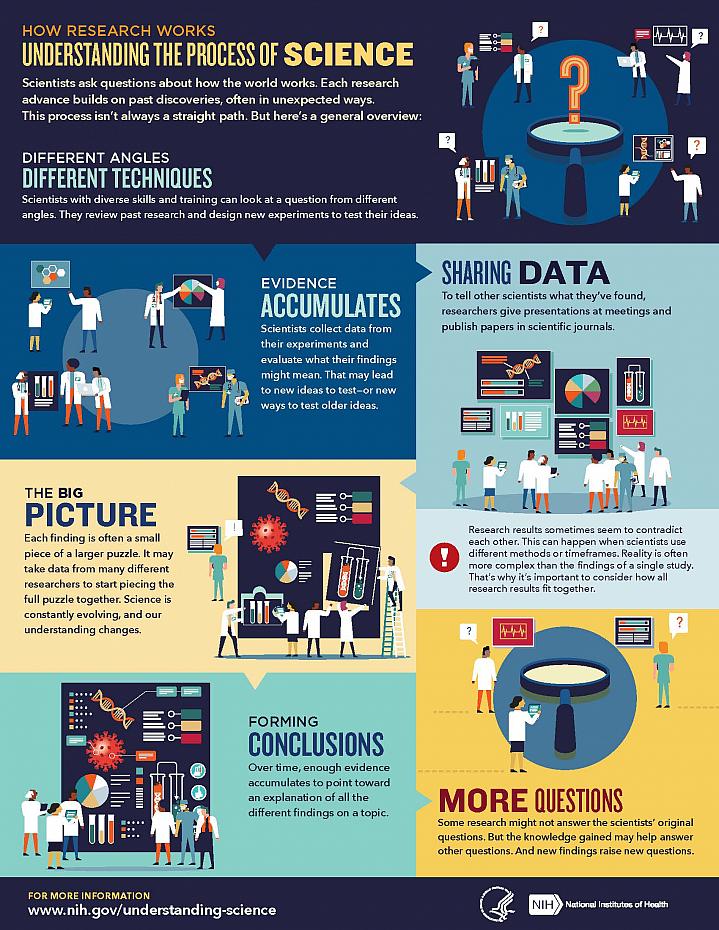
How Research Works
Have you ever wondered what it means to “follow the science?” Sometimes it may seem like what’s true one day changes the next. But when what we know changes, it often means science is working.
Research helps us understand the world through careful testing. Each advance builds on past discoveries. This process can take a long time. But the end result is a better understanding of the world around us.
In general, the scientific process follows many steps. First, scientists start with a question. They look at past research to see what others have learned. Different scientists have diverse skills and training. They each bring their own approaches and ideas. And they design new experiments to test their ideas.
Next, scientists perform their experiments and collect data. Then, they evaluate what their findings might mean. This often leads them to new questions and ideas to test.
The next step is to share their data and ideas with other scientists. Other experts can give new perspectives or point out problems.
It’s natural to want answers. But it’s important not to draw conclusions based on a single study. Scientists start to form conclusions only after looking at many studies over time. Sometimes, even these conclusions change with more evidence. Science is an evolving process. But it’s the best way we have to seek out answers.
NIH has created a one-page guide to explain more about how research works. Find the guide in English or Spanish.
Source: NIH News in Health
